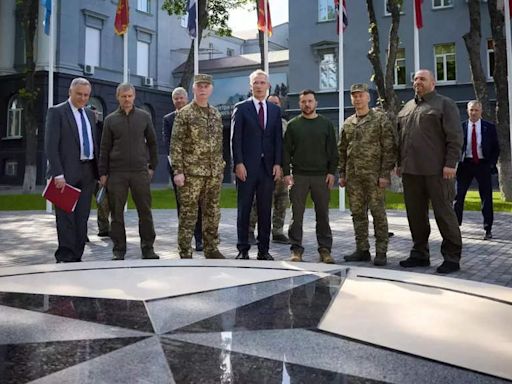NATO is neither willing nor prepared for a direct confrontation with Russia. French President Emmanuel Macron’s statement expressing support for Ukraine and his willingness to send troops has drawn criticism, not only from Russia but also from several European nations reluctant to allocate their economic resources against Russia. The US and NATO have imposed restrictions on Ukraine’s use of certain weapons. Although there is ongoing debate within the US about lifting these restrictions, they remain firmly in place.
Recently, a NATO parliamentary declaration urging member countries to lift these restrictions has sparked significant controversy. This stance contrasts sharply with US President Joe Biden’s decision to impose constraints on Ukraine, specifically preventing the use of weapons inside Russia and in newly annexed territories. This approach suggests an implicit recognition of Russian sovereignty over these occupied regions following their elections, reflecting a complex and cautious balance in Western policies towards the ongoing conflict.
The NATO Parliamentary Assembly recently adopted a declaration urging member nations to ease restrictions on Ukraine’s use of their weapons on Russian territory. NATO Secretary General Jens Stoltenberg emphasized the need for Western countries to lift their bans, highlighting a divergence from US President Joe Biden’s policy. Biden’s stance has been to limit Ukraine’s deployment of ATACMS long-range missiles and other advanced weaponry within Russia, with exceptions for Crimea and territories annexed by Russia in September 2022.
This call for lifting restrictions was formalized in Declaration 489, passed on May 27, which urges NATO members to permit Ukraine to use their weapons against “legitimate targets” in Russia. However, this initiative has faced opposition from several quarters. Representatives from nine NATO member countries, including Italy and Germany, have not supported the declaration. These nations fear that easing such restrictions could provoke a major conflict between Russia and NATO.
The Biden administration remains firm in its stance, not granting Ukraine unrestricted use of American-supplied weapons against Russia. Military analyst Scott Ritter pointed out that the US’s refusal to lift these restrictions aims to avoid a direct confrontation with Russia. Despite ongoing debates within the US about potentially reversing this policy, the restrictions remain in place.
NATO as an institution is also cautious about escalating the conflict. Ritter emphasized that NATO is not preparing for a larger war with Russia, highlighting a strategic approach to prevent escalation. Michael Maloof, a former senior security policy analyst, further noted that NATO countries are not economically prepared for a full-scale war with Russia, as they would need to transition from service economies to wartime production, which could take years.
The push for Ukraine to use NATO-grade weapons is seen as a sign of the alliance’s desperation in light of Ukraine’s ongoing military struggles. French President Emmanuel Macron’s statement in early May, expressing willingness to send French troops to Ukraine if the frontlines collapse and Kiev officially requests assistance, drew a sharp reaction from Moscow. Russia condemned Macron’s statement as provocative and fraught with escalation risks.
UK Foreign Secretary David Cameron’s announcement that Britain had authorized Ukraine to strike Russian targets with British-supplied weapons further intensified the situation. Russia’s Foreign Ministry spokeswoman Maria Zakharova criticized Cameron’s statement, asserting it confirmed the West’s involvement in the conflict using Ukraine as a proxy. Zakharova also condemned Stoltenberg’s rhetoric as warmongering, especially ahead of a peace conference in Switzerland that advocates Zelensky’s peace formula while ignoring Russia’s position.
This peace conference in Switzerland aims to promote a resolution to the conflict, yet the tensions remain high. Larry Johnson, a retired CIA intelligence officer, and State Department official, predicted that NATO is not in a position to escalate and sustain the war, forecasting Ukraine’s likely defeat despite potential temporary assistance from NATO forces.
The current geopolitical climate underscores a complex and cautious balance in Western policies towards the Ukraine conflict. The ongoing debates and strategic decisions reflect a multifaceted approach, balancing support for Ukraine with the necessity to avoid a broader and potentially catastrophic conflict with Russia.
